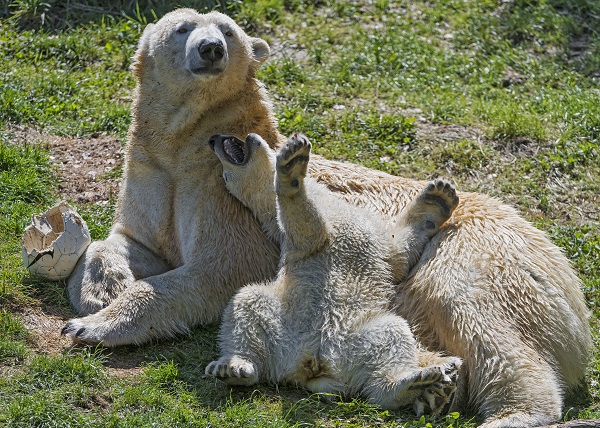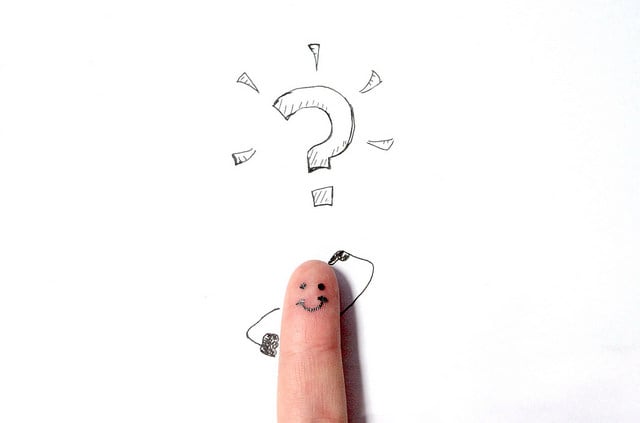8 Wacky English Words that Sound Completely Made-Up
The English language is both complex and quirky. Its idioms, words that aren’t pronounced at all like they’re spelled, and confusing (or contradictory) rules, all from a part of the wonderful language we call English. So don’t be a nincompoop and stop your lollygagging, and read onto to learn about some of the craziest English words—most of which sound completely made-up!
Photo via Flickr
1. Bumfuzzle
While this might seem like a cross between a type of fruit and a swear word, this funny word actually means something a whole lot different. Bumfuzzle refers to being confused or perplexed, and in some cases to cause confusion. This word was derived from the phrase dumfoozle and was once quite common on the U.S. East coast. These days it’s probably pretty unlikely you’ll hear someone say it, but that shouldn’t stop you from using it! Who knows, maybe you’ll bring bumfuzzle back into style!
2. Macaronic
No, macaronic is not some relative of macaroni and cheese. You also won’t find it in the desert section at a French restaurant. Nonetheless, this is one word that can still be applicable to you—especially if you’re learning another language or speak more than one. Macaronic actually refers to when someone mixes more than one language together while they’re speaking. A great example of a macaronic language would be Spanglish, which is a mix of English and Spanish, but you can also accidentally create a macaronic language if you tend to get your languages mixed up!
Getting your languages mixed up? Take a free placement test and keep your skills on point!
3. Taradiddle
I know what you’re thinking: surely this word must be a fake. Well it’s not! And I guarantee you probably have a taradiddle or two in your life. Someone who is a taradiddle tends to spout pretentious nonsense or tell tall tales. You know that friend who is always exaggerating about the size of the fish they caught on their last fishing trip? Yep, he or she is a total taradiddle!

Photo via Flickr
4. Abear
Nope, we’re not talking about the polar or grizzly variety, but something completely different! As you’ve probably already guessed none of these words tend to mean what they sound like they should. Abear with me while I explain what abear really means. Abear’s definition is very similar to bear (as in, bear with me) and means to endure or put up with something. Can you abear to learn about a few more quirky, weird English words?
5. Collywobbles
Care to take a stab at collywobbles’ definition? Let me ease your pain. Collywobbles is basically an uncomfortable feeling in your stomach, or a stomachache. The word actually derives from the Latin phrase cholera morbus which, you guessed it, is the disease most of us know as cholera. No need to save collywobbles for such dire situations as cholera though, you now have a go-to word for the way you feel the morning after a long night out involving way too many drinks!
6. Oxter
If abear has nothing to do with actual bears, then you’re probably assuming that an oxter is most definitely not another word for a friendship between an ox and an otter (although that would be absolutely adorable). Oxter is simply an outdated term for armpit. Still, might be fun to throw your general practitioner off by mentioning a pain in your oxter, just to see if he or she knows what it means.

Photo via Flickr
7. Abibliophobia
If you find it impossible to leave the library without a stack of books, or you spend so much time (and money) at your local bookstore that the employees know you by name, then you might be have abibliophobia. This phrase refers to the fear of running out of things to read. The only way to treat it is by buying more books, right? #TheStruggleIsReal
8. Wabbit
No, it’s not Elmer Fudd’s type of wascally wabbit, this wabbit means something entirely different (which shouldn’t surprise you at this point). This Scottish word actually means to be exhausted. So next time you’re tired just say “I’m feeling wabbit” and see how people react. On this same note, do you think Fudd ever grew wabbit of chasing his wascally wabbit?
What are some English words and phrases that you think sound made-up? Which of these 8 terms are your favorites, and which ones do you plan to incorporate into your vocabulary? Share your thoughts in the comments section!



